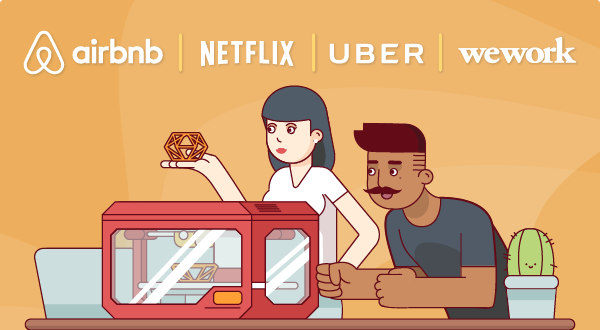While the novelty of creating the next Facebook sounds amazing, the truth is we don't need to necessarily invent a product to bring a new innovation to market.
If we look closely, we'll see that some of the fastest-growing companies out there — Uber, Casper, Dollar Shave Club and dare I say it, WeWork — are all based on ancient business models with a new twist.
Start With This: "What's Wrong With Current Products?"
Look, Uber didn't invent taxis — they just simply asked, "What's broken about the taxi business?" (Well, the limo business initially but who's tracking?) Any of us would be hard-pressed to find an existing product or service that couldn't use a ton of improvement.
What customers care most about is the improvement. Maybe that's increasing convenience (an app for taxis, yay!) or just simplifying the logistics process (my mattress delivered to my doorstep!).
It doesn't take a ton to breathe new life into dormant ideas, but it does have a massive impact.
Give an Old Product a New Twist
Every year the world changes so fast that we have to constantly ask ourselves, "How do the top trends in technology, product development and marketing affect every business out there today?"
These new trends can create entirely new business models for startups, like Dollar Shave Club taking the oldest recurring business model in history (replaceable shavers), giving it a new tech viral marketing twist, and going on to sell for over a billion dollars to Unilever.
The great thing about giving old products a new twist is we don't have to invent demand. People already need razors. What we need to do is take advantage of a changing landscape to drive market share.
There's so much value in entering proven markets with conditioned buyers versus trying to explain to the world what the hell our novel idea is.
Most Products are Just Poorly Run
Just because an incumbent product or company exists, that doesn't mean it's well run. Think about all of the places we frequent — are they all killing it on every front?
Probably not.
It's nearly impossible to build a business anymore that is fully defensible the way things used to be.
On top of that, once products hit a certain threshold in the evolution in a company, the people that work there are often way less motivated to be the best. Founders get the benefit of fresh legs, fresh perspective, and in most cases, a ton more upside than the people who are currently serving an old product.
So let's worry less about invention and focus a bit more on innovation. Novelty just adds complexity.
In Case You Missed It
How Much Should I Budget for an MVP? "I've got this incredible idea for an app in my head and I'm thinking about building the MVP (Minimum Viable Product) with a developer. I've never done this before, so I'm afraid of spending too much money. What should I do here?"
Everyone Says My Idea is Dumb. Is It? Becoming a Founder is often the first time in our lives where the advice of others — even our parents — may not necessarily be useful advice. So let’s be hyper-aware about how we get feedback and who we're asking to evaluate our idea.
What is Product Differentiation? As Founders, how do we clarify the differences between our products and other products on the market while preventing overlap between the offerings?
Find this article helpful?
This is just a small sample! Register to unlock our in-depth courses, hundreds of video courses, and a library of playbooks and articles to grow your startup fast. Let us Let us show you!
Submission confirms agreement to our Terms of Service and Privacy Policy.
Already a member? Login
Start a Membership to join the discussion.
Already a member? Login


This is useful reminder, that innovation is partly inspiration of previous masterpiece. Every successful or failed idea, leads to the next idea, eventually the next big idea.
1 Replies